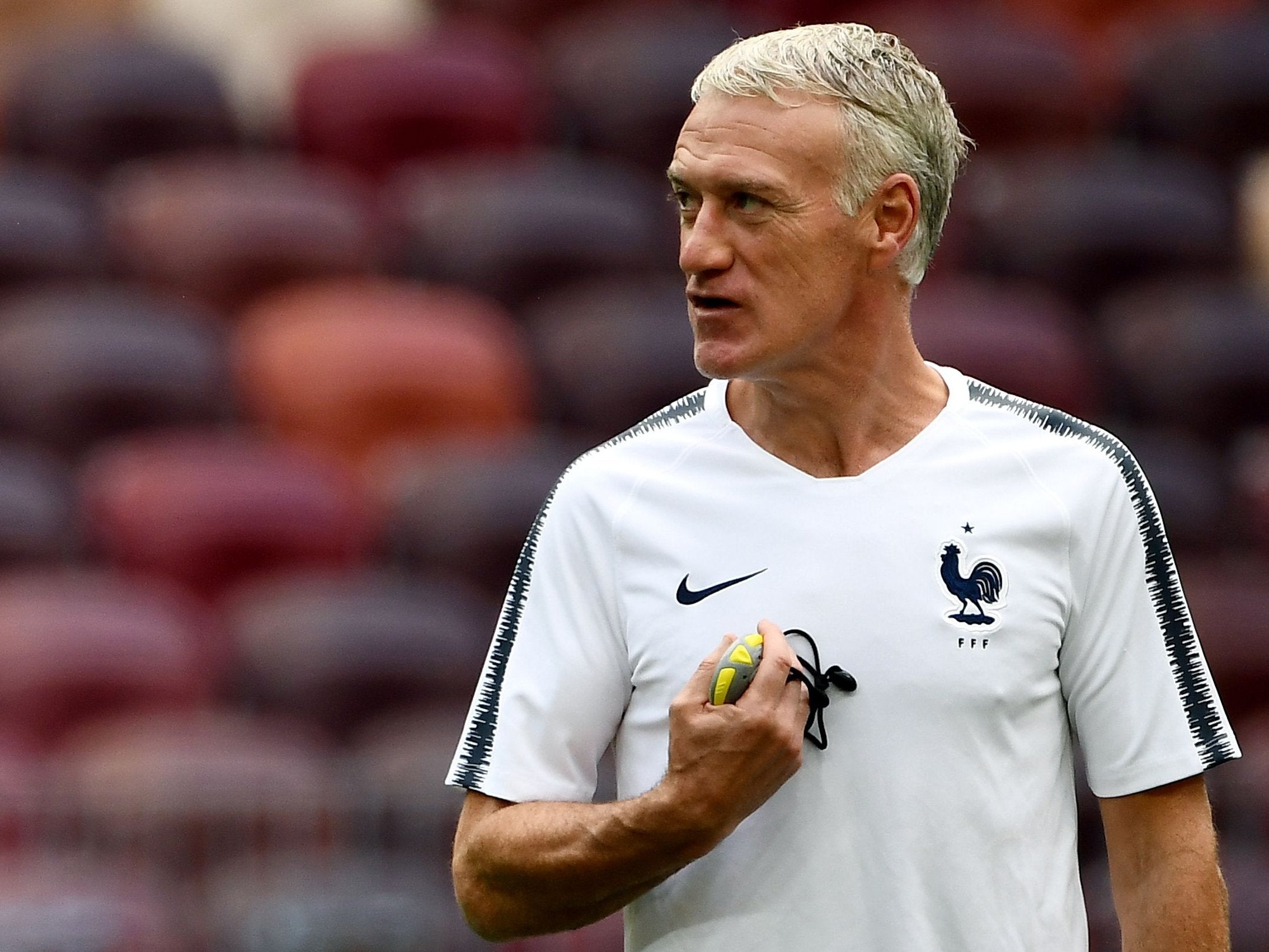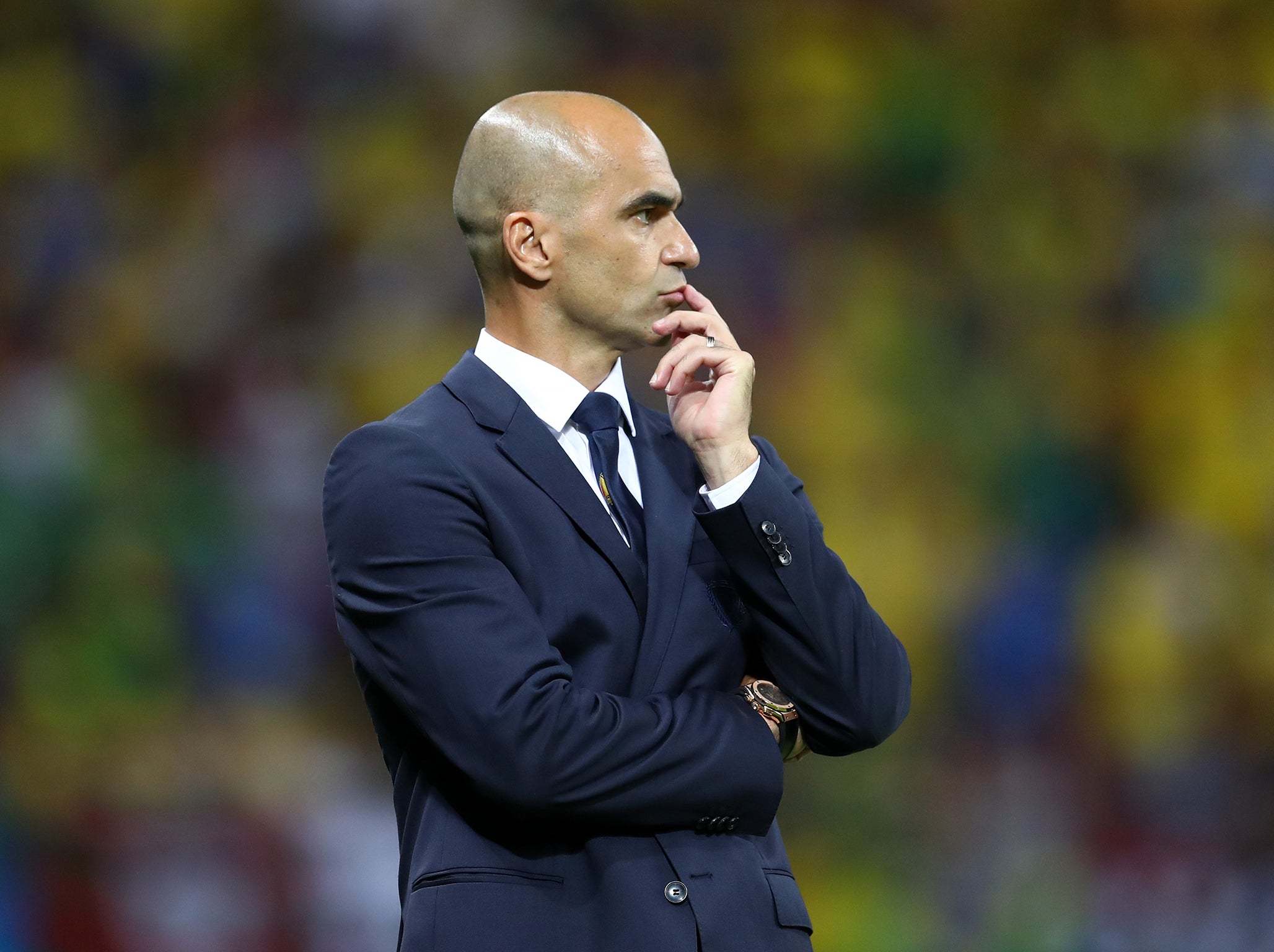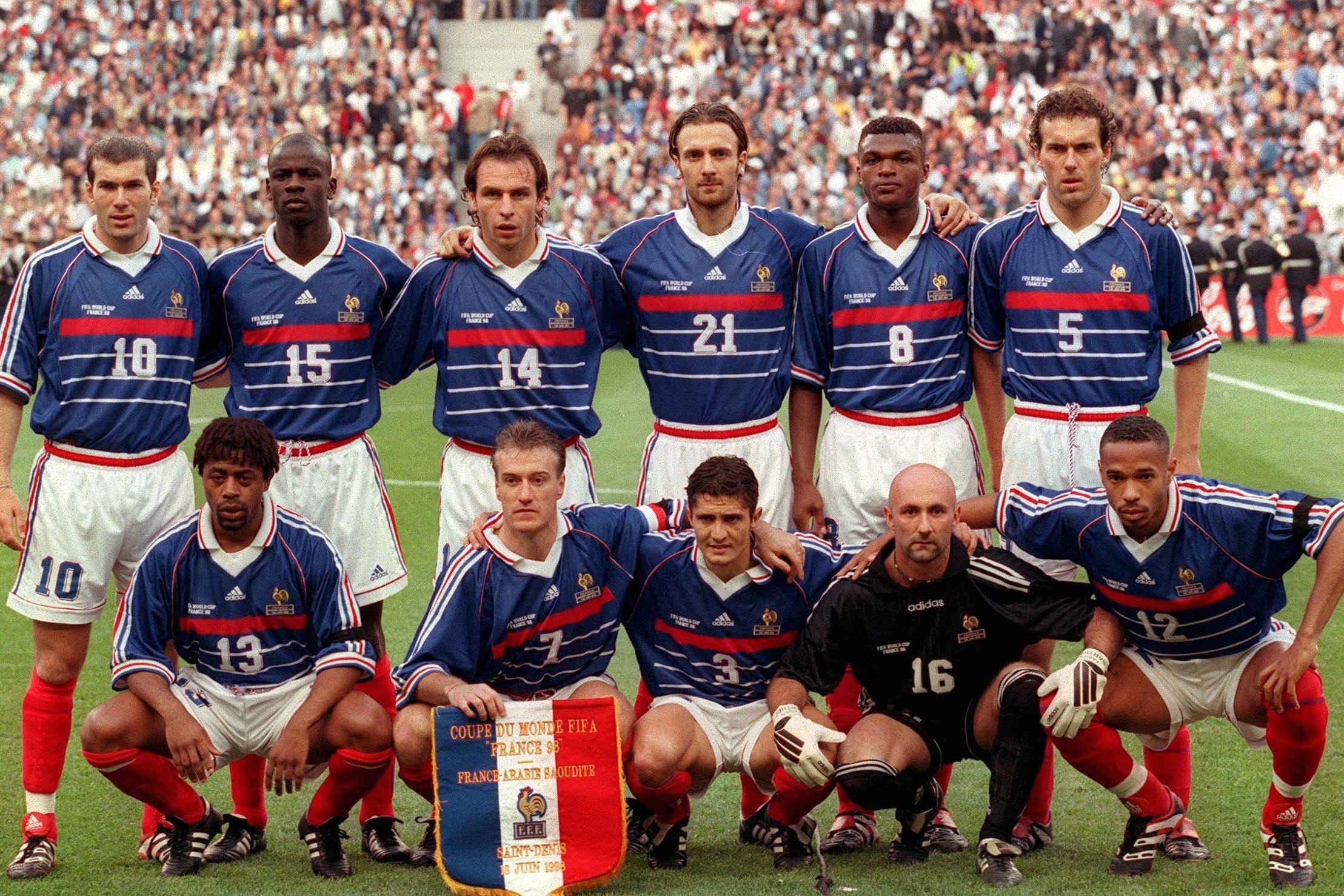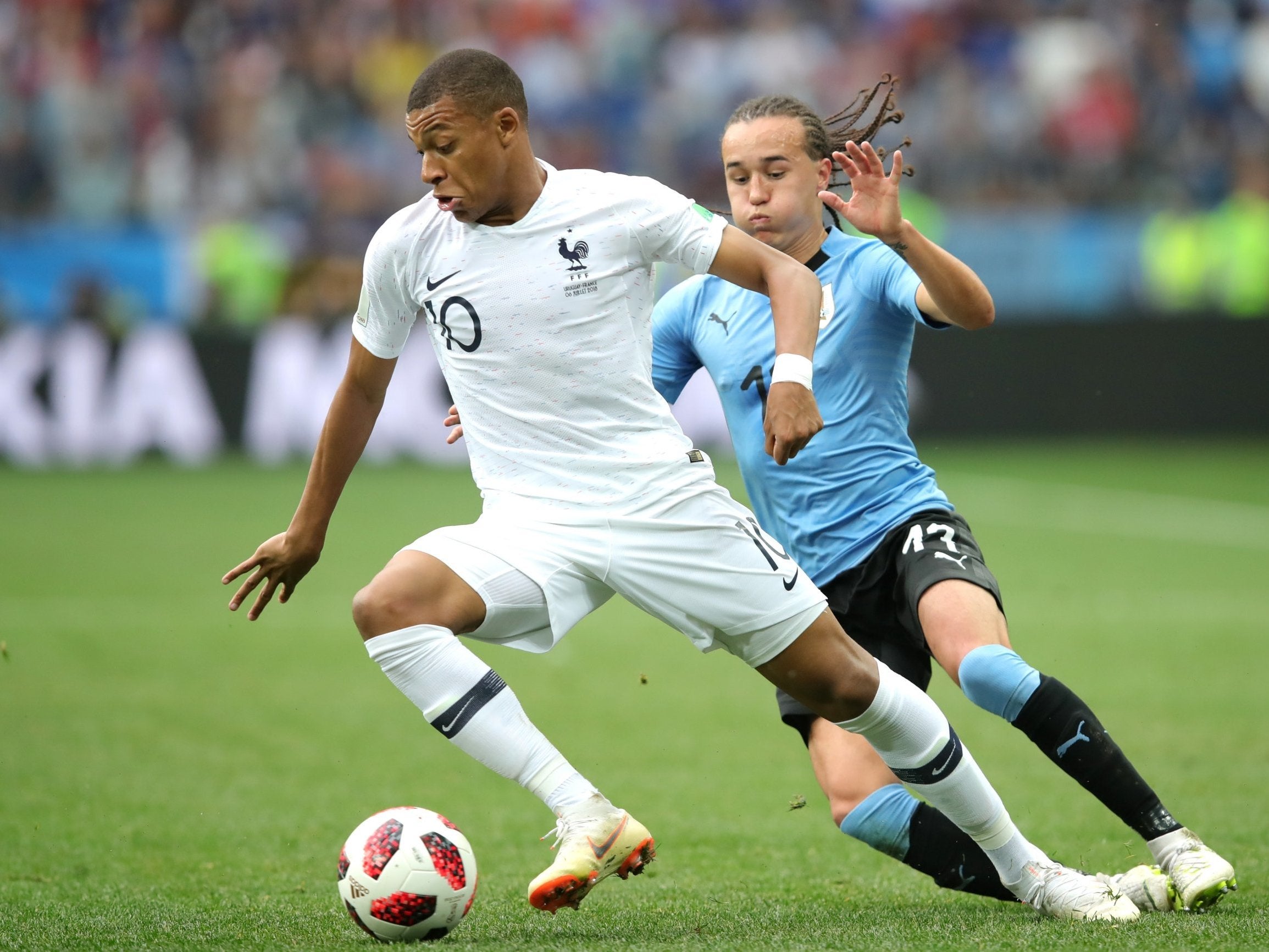France vs Belgium: Didier Deschamps and Roberto Martinez - Two similar teams guided by two diametrically opposed coaches
Although France and Belgium have much in common, there couldn’t be a greater contrast between the managers, in terms of their playing careers and their ideas on how to play the game

Your support helps us to tell the story
From reproductive rights to climate change to Big Tech, The Independent is on the ground when the story is developing. Whether it's investigating the financials of Elon Musk's pro-Trump PAC or producing our latest documentary, 'The A Word', which shines a light on the American women fighting for reproductive rights, we know how important it is to parse out the facts from the messaging.
At such a critical moment in US history, we need reporters on the ground. Your donation allows us to keep sending journalists to speak to both sides of the story.
The Independent is trusted by Americans across the entire political spectrum. And unlike many other quality news outlets, we choose not to lock Americans out of our reporting and analysis with paywalls. We believe quality journalism should be available to everyone, paid for by those who can afford it.
Your support makes all the difference.Just under six years ago, a few months after Didier Deschamps had taken the French job and when Roberto Martinez was still at Wigan Athletic, the Catalan was having a discussion at his club’s stadium and speedily talking with his typically intense enthusiasm about his entire football philosophy. However, one question stopped the manager in his tracks, sending the man into a moment of introspection. It was November 2012, the day after a defensively defiant Celtic had beaten Barcelona in the Champions League, and having already developed a reputation for resolutely sticking to attacking football come what may, Martinez was asked whether even he would consider compromising his approach for a challenge like that.
It took the Spaniard a long time to even start to answer. With Deschamps, you wouldn’t even have to ask the question.
He had actually already discussed the problem of facing Barcelona in an entertaining Blizzard interview earlier that year with his mentor Claude Suaudeau.
“The most difficult thing, when you play against Barca, is when you have the ball,” Deschamps says. He would gladly renounce it. He would gladly do whatever it took to win. Over the course of that interview, Suaudeau – a man Deschamps looks up to more than anyone else in the game, and who won unexpected league titles at Nantes – actually scolds his former player for such an attitude.
“There’s another thing I’d like to talk to you about,” the elder man says. “Your famous ‘culture of winning’. Don’t you think there’s a bit of a problem in there? I say the opposite. I’ll find plenty of elements [in the defeat] that will enable me to win tomorrow.”
This was not just an eternal difference of opinion in the game, but represents the main difference between the Belgium and France sides ahead of Tuesday’s Saint Petersburg semi-final. Although they have similarly talented teams, there couldn’t be a greater contrast between the managers, in terms of their playing careers and their ideas on how to play the game.

Martinez is the former lower-league journeyman who has a vision about the best way to win. Deschamps is the one of the most decorated players in history and a former world and European champion who will just do whatever it takes to win.
Adding just another element to this local derby of a semi-final is that it almost represents a referendum on these very principles of the game, since they are represented by the teams. France look so constrained but solid, Belgium so exciting but open. The former are always looking to close everything up, the latter attempting to push the limits. Belgium give a lot of excitement, while France give little up.
It’s similarly difficult to divorce the development of these principles from the two managers’ playing careers, particularly in the case of Deschamps.
Some who know the French manager well openly wonder whether he even has any kind of football identity or idea. It so often just seems that he is offering a continuation of what he picked up through his playing career, and that goes beyond the fact he was a defensive midfielder openly called “the water-carrier”.

The motto of the club he is most associated with, Juventus, is literally “winning isn’t important, it’s the only thing that counts”. Belief in that phrase was proven by the fact Deschamps’s 1996 Champions League-winning side were later involved in a court case that investigated doping, and ended in an unsatisfactory legal fudge, and that Juventus as a whole were later relegated for looking to influence referees in the Calciopoli scandal. That actually followed the fate of Deschamps’s previous club Olympique Marseille, who were relegated after winning the 1993 Champions League for outright match-fixing. It should of course be stressed here that these were all the result of decisions by non-football people way above the team.
While this was going on, though, Deschamps seems to have been greatly influenced by the men directly above him: the managers.
What seems his greatest quality as a coach is instilling a real canniness in his teams. They have a hugely admirable durability, an assertiveness that just gets them through, and wins so many matches by force of will.
That is not be sniffed at. It is reminiscent of Deschamps’s most celebrated side, the 1998 French World Cup winners, and so are his current tactics.
Through just setting up a strong defence and using one main striker – Olivier Giroud – in what the player himself calls the “Stephan Guivarc’h role”, Deschamps looks as if he has just taken the fundamentals of Aime Jacquet’s triumphant champions and transposed them onto the modern team.

“What matters are the two zones of truth,” Deschamps told Suaudeau. “In today’s football, if you’ve got a great keeper and a great striker, you’re not that far from victory. Of course, you shouldn’t have muppets in midfield!”
France do not have muppets in midfield. They have some of the finest players on the planet, just as they did 20 years ago. The big difference with 20 years ago, though, is that Deschamps has nothing like the fixed 2-3 in the centre that Jacquet did. He instead doesn’t have anything really fixed there at all, and it has probably been the main problem area of the team, because all of his loose configurations only ever seem to constrain the players. They’re still a very contained team, though, which is the point.
It’s difficult not to wonder what Martinez genuinely thinks of that, and would be equally difficult not to imagine what France would look like under him, if we didn’t have the example of Belgium.
They have similar attacking talent, and co-ordinating them in the way that Deschamps hasn’t has been one of the Spaniard’s main priorities.
There’s no reliance on canniness or more intangible qualities there. There’s a fully formed idea, largely based on the possession and pressing approach that is a core philosophy in Spain. Years in the lower leagues have made Martinez much more of a thinker, a calculator. He is much more of a hands-on coach, and has spent the months since qualifying preparing various different approaches. The formation and strategy used against Brazil, for example, is the result of a lot of work and thinking since January.

It was there ready to be used for precisely the right occasion, and there are more. Then there are the comments about Kevin De Bruyne to Goal journalist Pete Staunton. This clearly isn’t a player just put out, as sometimes feels the case with, say, Paul Pogba.
“Maybe because at club level he’s always at the end of an assist or at the end of a goal and then it’s easy to bring a highlight out of him,” Martinez said. “His influence in our team has been a lot deeper, allowing us to have influence in the final third and being a real playmaker for us. I will always remember there was a moment at 0-2 down against Japan and he’s the one that is giving a bit of composure, a bit of belief and he’s getting everyone to know that we’ve still got time to get back into the game. That’s a role that allows us to be a team. He’s essential for us.”
It’s just that when one of your best attackers is also so deep, it reflects something else: how front-loaded this team is, how little regard there is for defensive resolve.
That could be seen in the two goals conceded to Japan, and the amount of chances Brazil created in the pulsating second half of their quarter-final.
There are so many times when it seems like Belgium could greatly do with France’s solidity, just as there are so many times when it seems like France could greatly do with Belgium’s adventure.
Tuesday will be a time when some truth is revealed.
Back in 2012, Martinez did eventually reveal his opinion.
“I think Barcelona are the only team in the world against whom you’re allowed to compromise your approach. They play every game on their terms.”
That’s what he’ll try to do on Tuesday. Deschamps has different terms. It will end up as the difference on the night.
Join our commenting forum
Join thought-provoking conversations, follow other Independent readers and see their replies
Comments